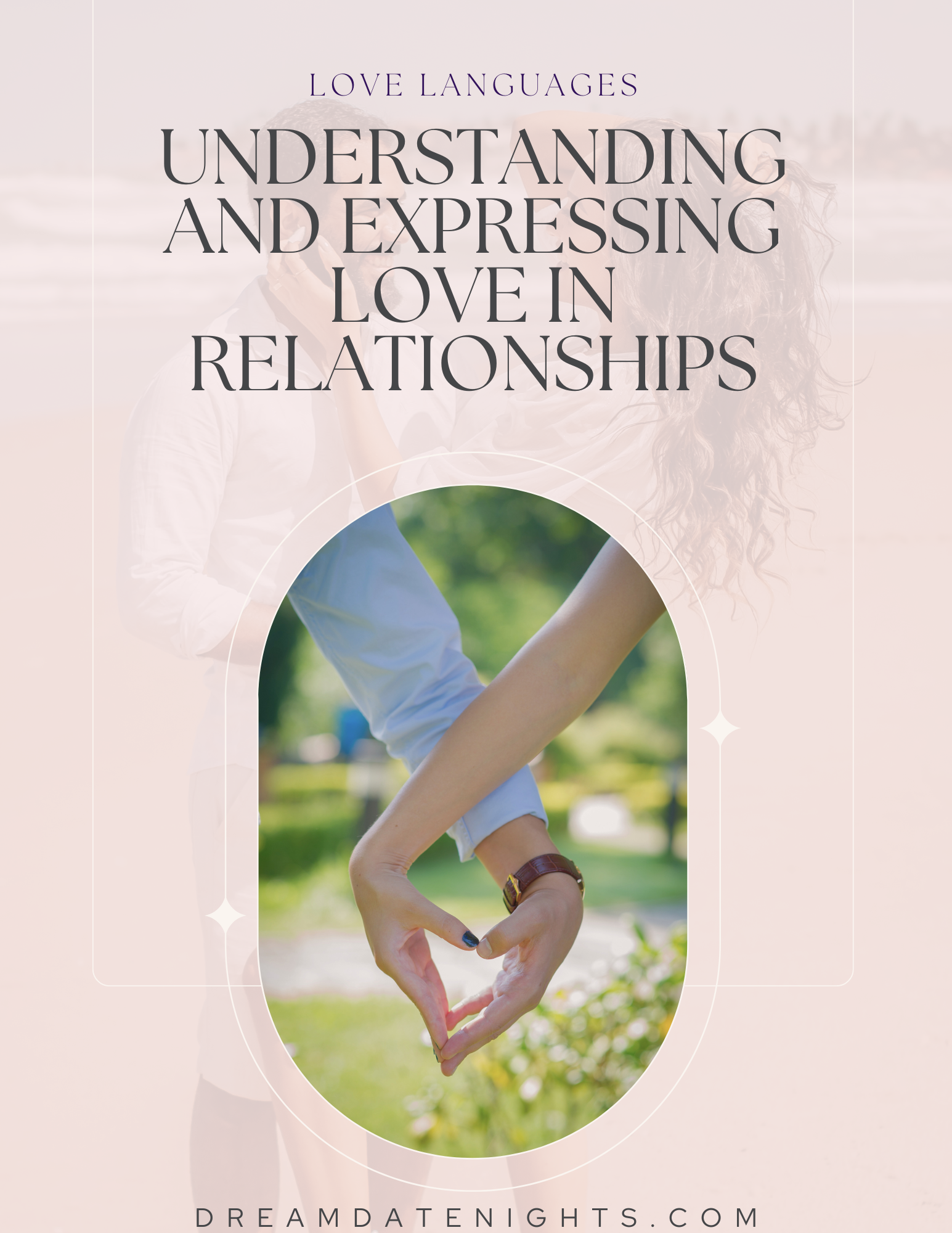How to Manage Stress Together and Strengthen Your Relationship
Stress is a major part of life, and everyone has to deal with it. Like, life is majorly stressful at times! Dealing with stress in a relationship can be challenging, but it's way better to address it before it takes a toll on your mental and emotional wellbeing.
Whether it's financial problems, communication issues, or external pressures, stress can manifest in different ways and affect both partners when you're going through a rough patch. In literally every relationship stress can and will happen! It's totally normal to go through stressful times as it's an inevitable part of life, and you're not alone. The good news is that there are effective ways to manage stress and improve your relationship.
There are some affiliate links below, but they are all products I highly recommend. For more info, view my disclosure.
The first step in dealing with stress in a relationship is to acknowledge it and communicate your feelings with your partner. Keeping your emotions bottled up can lead to resentment and further strain on your relationship.
Instead, try to have an open and honest conversation about what's causing the stress and how you can work together to find a solution. This can help you both feel heard and understood, and create a sense of teamwork in tackling the issue.
Stress management techniques can also be helpful in reducing tension and promoting relaxation. This can include activities such as meditation, deep breathing, exercise, or spending time in nature. Finding healthy ways to cope with stress can not only benefit your relationship, but also improve your overall well-being.
We'll explore some effective strategies for dealing with stress in a relationship, so that you can strengthen your bond and navigate challenges together.

Identifying the Sources of Stress
Stress in a relationship can come from various sources, and it is important to identify them to address the issues effectively. Here are some common sources of stress in a relationship:
External Stressors and Relationship Dynamics
External stressors such as financial problems, work-related stress, or family issues can have a significant impact on a relationship. Relationship dynamics such as communication problems, lack of trust, or differences in values can also lead to stress.
To identify external stressors, it can be helpful to make a list of the things that are causing stress in your life and how they are affecting your relationship. Communicate openly with your partner about your concerns and work together to find solutions.
Internal Pressures and Mental Health
Internal pressures such as unrealistic expectations, self-doubt, or personal insecurities can also contribute to stress in a relationship. Mental health issues such as anxiety or depression can also affect a person's ability to cope with stress and maintain a healthy relationship.
To identify internal pressures and mental health issues, it can be helpful to reflect on your own feelings and behaviors. Are you putting too much pressure on yourself or your partner? Are you struggling with anxiety or depression? It is important to seek support from a mental health professional if necessary and communicate openly with your partner about your struggles.
By identifying the sources of stress in your relationship, you can work together with your partner to address the issues and build a healthier, more resilient relationship.
Communication: The Foundation of Support
In any relationship, communication is key. When dealing with a stressful situation in a relationship, effective communication becomes even more important. It is the foundation of support for both partners.
Enhancing Communication Skills
To enhance your communication skills, actively listen to your partner. This means giving them your full attention, avoiding distractions, and asking clarifying questions. It is also important to express your thoughts and feelings clearly and respectfully. Use “I” statements instead of “you” statements to avoid blame and defensiveness.
Body language and facial expressions are also important aspects of communication. Pay attention to your partner's nonverbal cues to better understand their emotions and perspective. Additionally, be aware of your own body language and facial expressions to ensure that you are conveying your message effectively.
Creating a Safe Space for Dialogue
Creating a safe space for dialogue is crucial for effective communication. This means setting aside time to talk without distractions or interruptions. It also means creating an environment where both partners feel comfortable expressing their thoughts and feelings without fear of judgment or retaliation.
When discussing your partner's stress, approach the conversation with empathy and understanding. Acknowledge their feelings and validate their experiences. Avoid minimizing their stress or offering unsolicited advice. Instead, focus on listening and offering support.
Effective communication is the foundation of support in a relationship. Enhancing your communication skills and creating a safe space for dialogue can help you and your partner better navigate stress and strengthen your relationship.

Stress Management Techniques
Dealing with a lot of stress in a relationship can be challenging, but there are effective techniques that can help you manage it. Here are some stress management techniques that you can try.
Individual Coping Strategies
When you're feeling stressed, take care of yourself. Here are some individual coping strategies that can help you manage stress:
- Take deep breaths: Deep breathing can help you relax and reduce stress. Take a few deep breaths in and out, and focus on your breath as you do so.
- Regular exercise: Regular exercise can help you reduce stress and improve your overall well-being. Try to incorporate exercise into your daily routine, even if it's just a short walk.
- Leisure activities: Engaging in leisure activities can help you reduce stress and improve your mood. Find activities that you enjoy, such as reading, listening to music, or spending time with friends.
Couple's Stress Reduction Activities
Stress can also affect your relationship, so you'll need to work together to manage it. Here are some couple's stress reduction activities that you can try:
- Communication: Communication is key in any relationship. Take the time to talk to your partner about your stress and how you're feeling. Listen to their perspective and work together to find solutions.
- Relaxation techniques: Try practicing relaxation techniques together, such as meditation or yoga. These techniques can help you both relax and reduce stress.
- Quality time: Spending quality time together can help you reduce stress and strengthen your relationship. Plan activities that you both enjoy, such as going for a walk or cooking a meal together.
By practicing these stress management techniques, you can reduce stress in your relationship and improve your overall well-being.
Professional Help and Therapy
Dealing with stress in a relationship can be difficult, but seeking professional help and therapy can be a productive way to address the issue. Couples therapy can provide emotional support and help you and your partner find productive ways to communicate and work through your problems.
When to Seek Couples Therapy
If you and your partner are experiencing ongoing stress and are having trouble resolving conflicts on your own, it may be time to seek couples therapy. Some signs that it may be time to seek professional help include:
- Frequent arguments or disagreements
- Difficulty communicating effectively
- Lack of intimacy or emotional connection
- Trust issues or infidelity
- Difficulty making decisions together
The Role of Family Therapists
Family therapists can also be a valuable resource for couples dealing with stress in their relationship. Family therapists are trained to help families and couples navigate complex relationships and dynamics, and can provide a safe and supportive environment for you and your partner to work through your issues.
During therapy sessions, family therapists may use a variety of techniques to help you and your partner communicate more effectively and work through your problems. These techniques may include cognitive-behavioral therapy, mindfulness-based therapy, or other evidence-based approaches.
Overall, seeking professional help and therapy can be an effective way to address stress in your relationship and improve your overall well-being. If you are struggling with stress in your relationship, consider reaching out to a couples therapist or family therapist to get the support you need.

Grab Our FREE Love Languages Guide!
Love is a universal language, but did you know that people express and receive love in different ways? Discover the concept of love languages and how they can transform your relationship!
Building a Stronger Relationship
When you're dealing with stress in your relationship, keep your focus on building a stronger connection with your partner. Here are some tips to help you do just that:
Spending Quality Time Together
One of the most important things you can do to strengthen your relationship is to spend quality time together. This doesn't mean just sitting on the couch watching TV – it means actively engaging with each other and doing things that you both enjoy. Some coffee, good conversation, and connection can do wonders for your emotional state when going through stressful times!
Try to set aside some time each week to do something special together. This could be anything from going for a walk in the park to trying out a new restaurant. The key is to make it a priority and to really focus on each other during that time.
Establishing Healthy Boundaries
Another aspect of building a strong relationship is establishing healthy boundaries. This means being clear about what you will and won't tolerate in your relationship and setting limits when necessary.
For example, if your partner is constantly criticizing you or putting you down, it's important to let them know that this behavior is not acceptable. You might say something like, “I love you, but it really hurts me when you talk to me like that. I need you to stop.”
By setting these boundaries, you're showing your partner that you value yourself and your relationship enough to stand up for what you believe in. This can go a long way towards improving your relationship satisfaction and building a stronger connection with your partner.
Remember, building a strong relationship takes time and effort, but it's worth it in the end. By spending quality time together and establishing healthy boundaries, you can weather the hard times and come out even stronger on the other side.

Hi, We’re Natasha & Dan!
We love travel, puzzles, and finding fun in the little things. When we’re not traveling, we live in the mountains of Colorado home with our two crazy rescue pups, Roxy & Rico.







